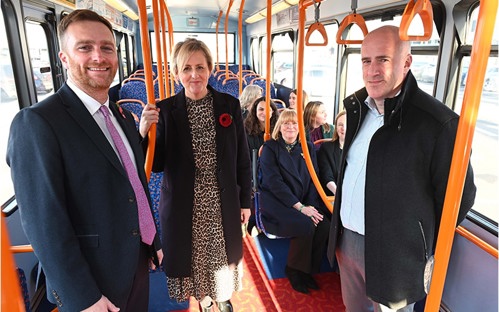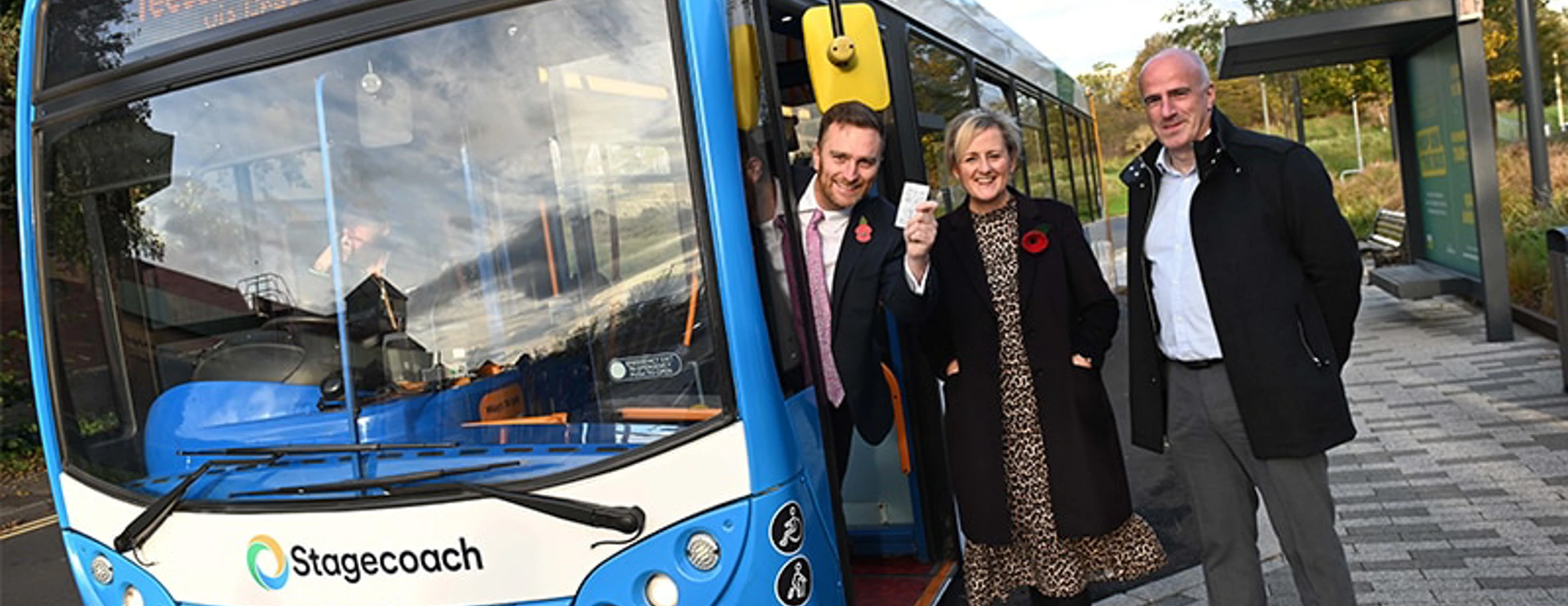As one of the UK’s largest property companies, we rely on a network of people across our places to achieve the ambitious targets set out in our 2030 sustainability strategy: Greener Spaces, Thriving Places, Responsible Choices. Here, Catherine Furlong of Teesside Park reflects on the power of public transport to grow social impact and support climate goals.
Catherine Furlong, Centre Director at Teesside Park
Teesside Park is the top retail destination in the Tees Valley. Over the past year, a host of local stakeholders have got behind our campaign to secure better public transport links to the centre. This means more people than ever are able to access our retail and leisure offer and jobs.
Stagecoach and Arriva have launched four new bus services connecting us to areas, including Hartlepool, Billingham, Norton, Thornaby and Ingleby Barwick. Tees Valley Combined Authority has also unveiled plans to invest £150m in a new train station and bus interchange at Teesside Park. This shows how much can happen when people engage and collaborate on public transport.
How this campaign began
What kickstarted this journey was hearing from a young person taking part in our Bright Lights employment partnership with Middlesbrough FC Foundation. This supports local 18–24-year-olds to access careers in retail and hospitality. As I talked to the group about opportunities, a lad put his hand up and said, “that’s all very well, but I can’t get there”. This lit a fire for me.
When you have a car, it’s easy to take it for granted that you can get to places; but people who rely on public transport can be excluded from work, education, health and social opportunities. This is a real issue in the Tees Valley, which has low car ownership levels.
Growing social impact
Since our new bus services launched, around 14,000 people are using them every month, exceeding expectations; and we’re getting a lot of feedback about the difference this is making to people’s lives. Someone who used to catch four buses to get to work and now only needs one commented: “I get two hours back in my day and can spend time with my kids”. Others talk about how much they’re saving because they no longer have to spend most of their wages on taxis to get home from work.
The social impact of public transport is huge. As an example of how it can open up employment opportunities, the young lad who kickstarted my journey was able to accept a job at the centre, knowing he could get here. Low-income families without a car can access our stores, students enjoy shopping and leisure trips and people who were previously isolated come here and meet others. Several retailers have also commented that the new buses contribute to recruitment and retention becoming easier.

Supporting climate goals
Public transport is a great example of how social and environmental benefits can go hand in hand. Bus journeys emit less carbon per person than a single person travelling in a private car and help to remove congestion from local roads. Plus, bus emissions will go down further as more cities implement plans for electric and hydrogen buses.
Stagecoach and Arriva are both progressing net zero carbon plans, including investing in low-emission electric buses. We’re also hoping to see a modal shift in the months to come, as people who currently drive to the centre switch to buses – a more affordable and sustainable alternative.
Our journey doesn’t stop here
It’s now easier than ever to get to Teesside Park, but our journey doesn’t stop here. I’ve caught the transport bug. We’re already in discussions about potential new bus routes and will continue doing everything we can to meet the needs of our customers and communities.


